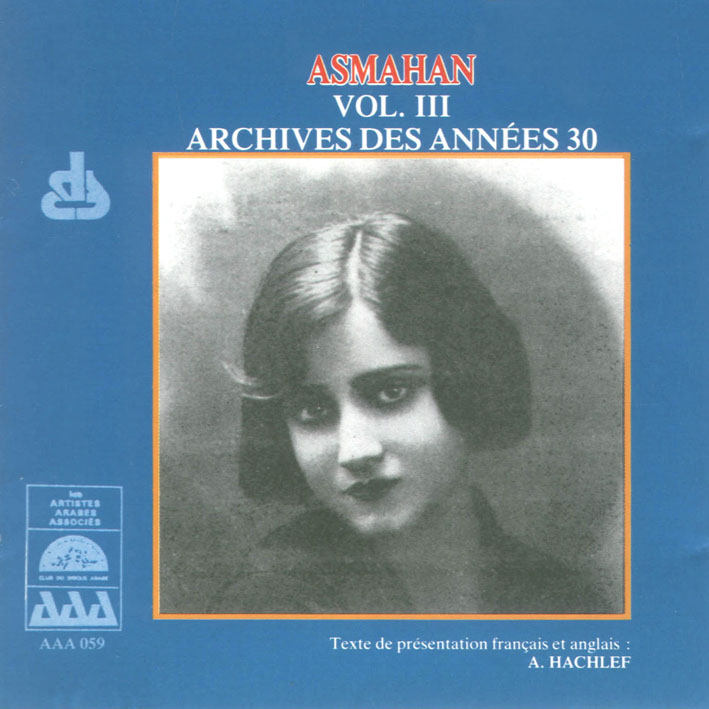Asmahan, vol. III . Archives des années 30 /AAA 059

vol. III . Archives des années 30
ed. 1992
أسمهان
01 - Eina Ellayali
[5:17]
02 - Kelma Ya Nour Elouyoun [5:44]
03 - Ya Nar Fouadi [5:58]
04 - Fi Youm Ma Chouftek [5:56]
05 - Konti Elamani [5:21]
06 - Ahedni Ya Qalbi [8:21]
Chansons du film "Gharam Ouentiqam"
07 - Layali Elouns [11:09]
08 - Ahwa [6:13]
09 - Ayouh Ennaimou [6:37]
10 - Emta Hataaraf [6:33]
11 - Ana Elli Estahel [5:41]
Asmahan (1912-1944)
Think Cairo, World War II. Allied soldiers crowd the bars and the
battlefields of North Africa. Well-tailored European tourists loiter in
the marbled hotel lobbies. Shimmering on the silver screens is a
beautiful singer, a starlet by the name of Asmahan. A Druze princess
with eyes so green they shone through the black-and-white, and men fell
madly in love.
She challenged the conventions of gender and women adored her for it.
Asmahan's real-life story is as exotic as any movie script. A spy for
the British, perhaps for the Turks, and like any good cult figure, she
died young in a suspicious auto accident. Marlene Dietrich, Edith Piaf,
Mata Hari, now we meet another exotic woman striding across those
cultural barriers.
The great Arab singer Asmahan (1918-1944) was the toast of Cairo song
and cinema in the late 1930s and early 1940s, as World War II
approached. She remained a figure of glamour and intrigue throughout
her life and lives on today in legend as one of the shaping forces in
the development of Egyptian popular culture.
